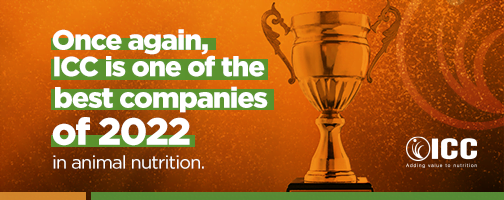Correct yeast disposal may prevent the stable fly proliferation
The material can be used for the production of solutions for animal nutrition
Common in regions with sugar cane mills and livestock activity, stable flies cause many losses to cattle breeders. The insect, which reproduces in stillage (a residue generated by the ethanol manufacturing process), bites the animals and feeds on its blood, inflicts both pain and itchy sores. The stress ultimately causes animals to eat less, lose weight, and produce less milk.
Since stillage is disposed of in the surrounding environment, it contributes to the rapid reproduction of flies and may contaminate the soil and rivers near the mills. For every liter of alcohol produced, about 30 grams of dried yeast is left. It may seem little, but if you consider the total volume of alcohol production in Brazil, which is estimated at 33.1 billion liters for 2020 (AGÊNCIA BRASIL, 2019), mills face enormous liabilities for their effect on the environment.
According to Sidmeire Oliveira, Quality Coordinator at ICC Brazil, a pioneer in the production of innovative solutions for animal nutrition with yeast-based additives, the yeast from vats used for alcohol production consists of yeasts, which themselves are living microorganisms. When they multiply, the excess of yeasts needs to be removed from the vats to avoid harming its alcoholic performance. “When the mill has a dryer yeast, this spare yeast is transformed into a dry and non-perishable ingredient for animal nutrition. If they cannot dry this yeast, then the yeasts are discarded together with the stillage and repurposed for fertigation, or rather, it is released into the soil, raising its available organic matter,” says Oliveira.
ICC Brazil is a sustainable company, using by-products from industries of the sugar and alcohol sector in its production process. The company has partnered with about 20 yeast supply plants, which guarantees the delivery of products to customers, supplying the animal nutrition market with a protein of high functional value and preventing improper disposal in the environment. ICC Brazil produces an average volume of 65 thousand tons of yeast per year, with 70% of its production intended to serve large customers in the international market.
About ICC Brazil
ICC Brazil is a company that creates solutions for animal health and nutrition. Recognized in Brazil and abroad for its innovative solutions, our company creates products based on sugarcane yeast. Since 1992, Since 1992, ICC has been working with universities as well as national and international research centers to carry out over 200 studies and in vivo research in different areas of animal production, ensuring the quality and efficiency of our products. https://www.iccbrazil.com
Posted in 30 April of 2020


